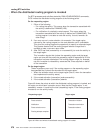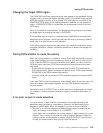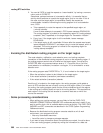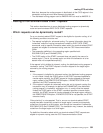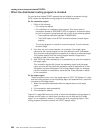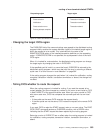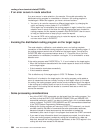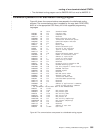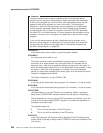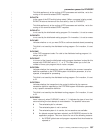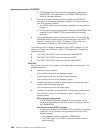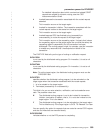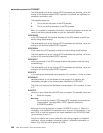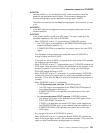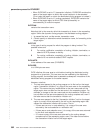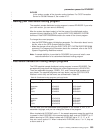
Important
The same communications area is passed to both the distributed routing
program and the dynamic routing program. Some parameters are meaningful
to one routing program but not to the other. Some parameter-values may be
passed to one routing program but never to the other. The following list
describes in detail only the parameters that are significant to the distributed
routing program; parameter-values that are never passed to the distributed
routing program are not listed. For example, under the DYRTYPE parameter
the value X'4' is not listed because it is never passed to the distributed routing
program—it occurs only on a program-link-related call to the dynamic routing
program.
If you use the same program as both a distributed routing program and a
dynamic routing program, for descriptions of the parameters and values that
are significant on dynamic routing calls refer to “Parameters passed to the
dynamic routing program” on page 562.
DYRABCDE
is the abend code returned when a routed transaction abends.
DYRABNLC
is an abnormal event code, or null.
This field is significant when the distributed routing program is invoked for
termination of a routed request. Any value other than null indicates that an
abnormal event,
other than a transaction abend
, has occurred in the region to
which the request was routed (which, for the distributed routing program, is also
the region in which the routing program is invoked). Your routing program
should not route further requests to the same region until the cause of the error
has been investigated and rectified.
This field is intended for use by CICSPlex SM.
DYRACMAA
is not used by the distributed routing program. On invocation, it is set to zeroes.
DYRACMAL
is not used by the distributed routing program. On invocation, it is set to zeroes.
DYRACTCMP
indicates whether or not the BTS activity is completing. (When a process is
being routed, DYRACTCMP indicates whether the root activity is completing.)
This field applies only to the routing of BTS processes and activities,
not
to the
routing of non-terminal-related START requests. Its contents are significant on
transaction termination calls.
The possible values are:
Y This is the final activation of the BTS activity.
N This is not the final activation of the BTS activity.
DYRACTID
is the CICS-assigned, 52-character activity identifier of the BTS activity being
routed. (When a process is being routed, DYRACTID returns the identifier of the
root activity.)
parameters passed to DFHDSRP
586
CICS TS for OS/390: CICS Customization Guide
|
|
|
|
|
|
|
|
|
|
|
|
|
|
|
||
|
|
|
|
|
|
|
|
|
|
|
|
|
|
|
|
|
|
|
|
|
|
|
|
||
||
|
|
|
|



